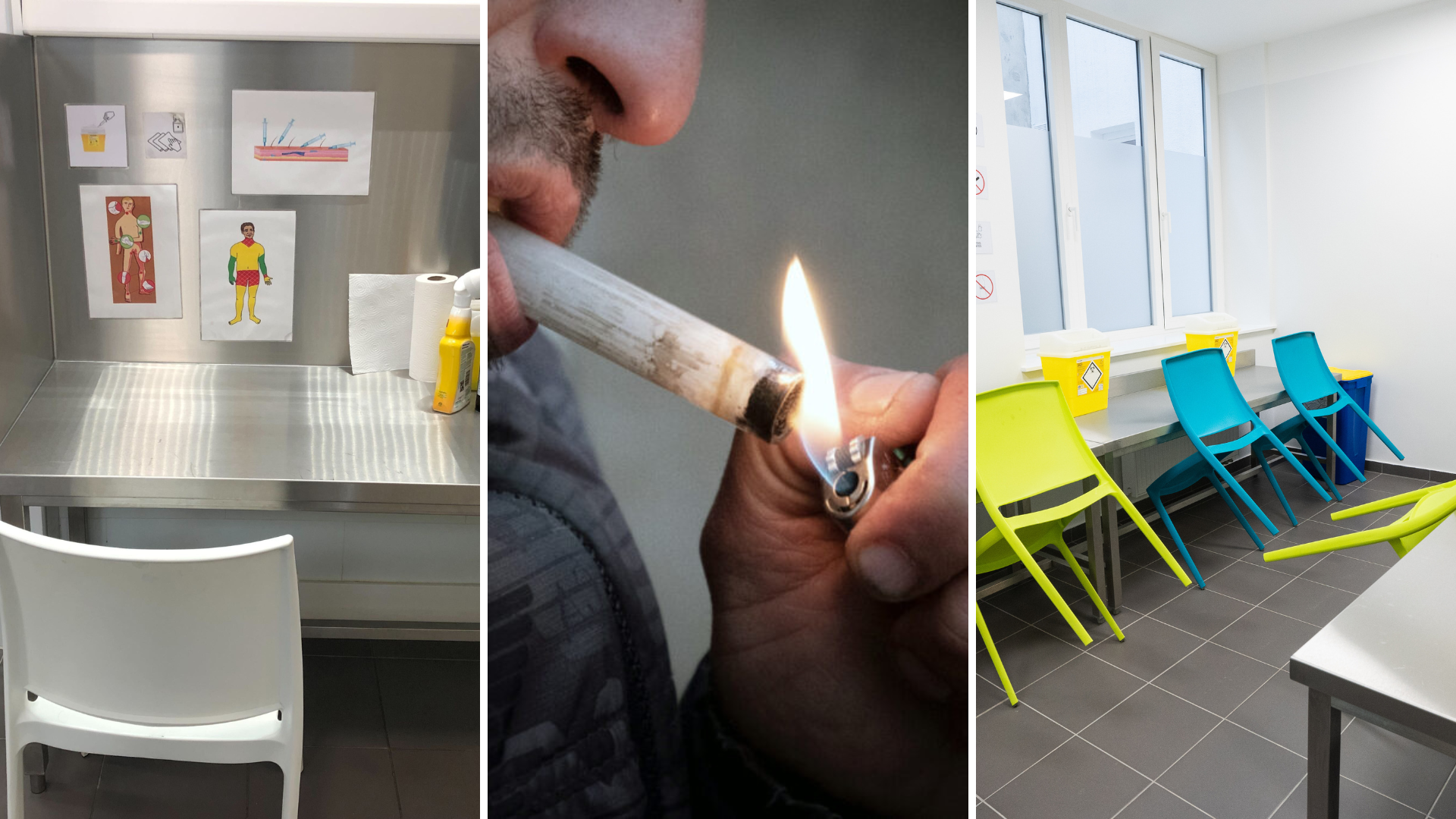Drug consumption rooms provide a safe space for impoverished drug users to consume illegal substances under supervision and with access to healthcare. The centres play an essential role as a drug crisis unfolds in Brussels, but the sector lacks the funds to cope with demand.
There is an atmosphere of conviviality in the centre. Staff are warm, and visitors look happy to be there. At ease in their surroundings, they greet everyone they pass. The building itself is bright, modern and spacious, with high ceilings, white walls and comfortable facilities. "The aim here is to bring back dignity," coordinator Maïté Deprez told The Brussels Times. "When a drug user has no self-esteem, recovery is unimaginable to them."
This is Gate, a drug consumption room (salle de consommation à moindre risque, or SCMR) located next to Gare du Midi. The centre allows drug users living precariously to snort, sniff, inject or inhale illicit substances under supervision of trained medical staff, who provide advice about safer practices and intervene in the event of an overdose.
The facility seems to have thought of everything. Posters and diagrams show the safest way to inject a needle into your arm, and there are boxes full of sterile syringes. One ventilated room is specifically dedicated to smoking crack cocaine. Access to all areas where drugs are consumed is carefully monitored, and users register anonymously so as to mitigate fears of punishment for consuming illegal substances.
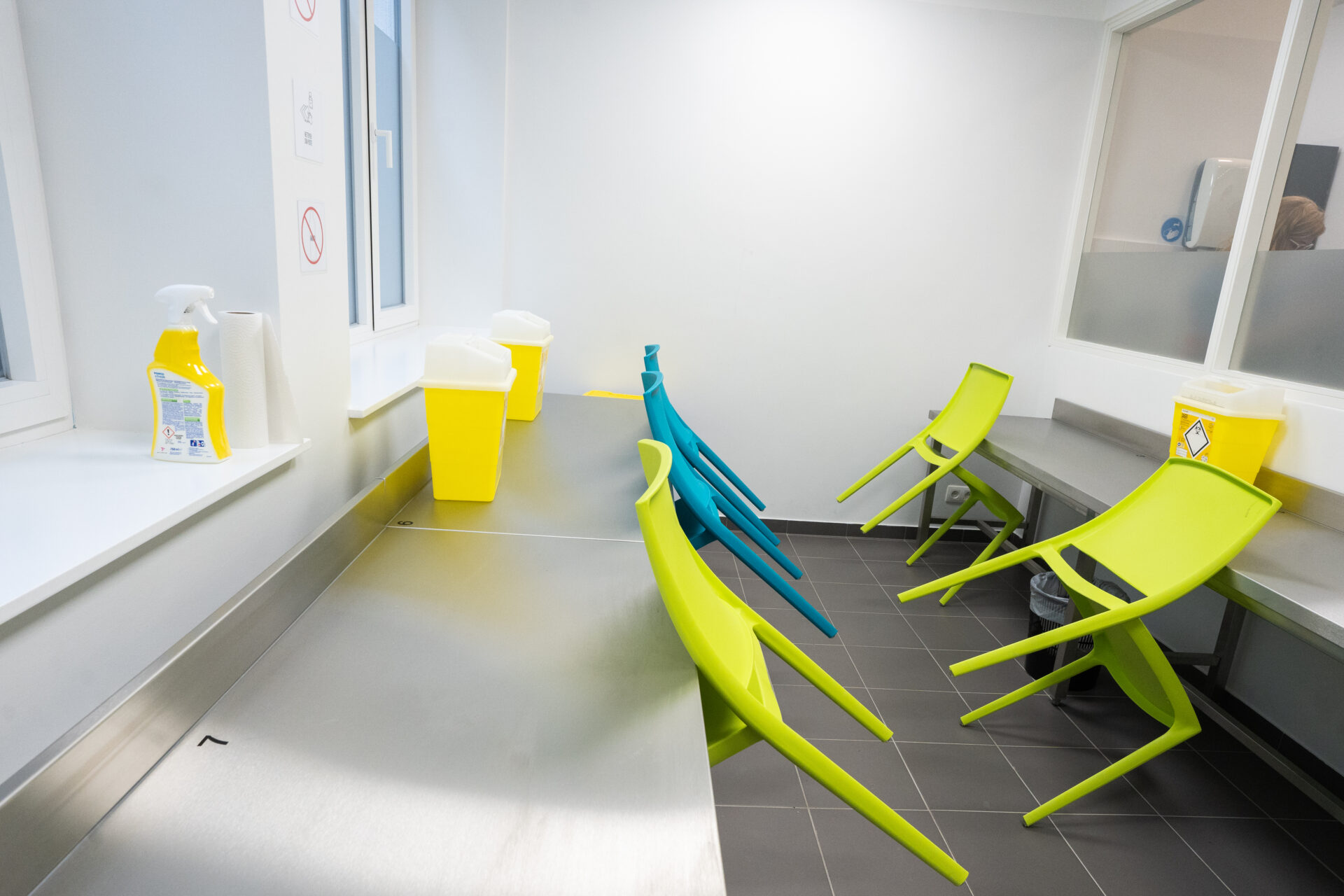
A ventilated room in Gate where users can safely use crack cocaine. Credit: Belga / Juliette Bruynseels
Crack crisis or social crisis?
Gate opened in 2022 in response to an explosion of public drug use. Crack cocaine has overtaken heroin to become the most popular (and most nefarious) drug on the streets. One hit of the highly addictive substance costs €10-15 but only lasts about ten minutes, and the drug is wreaking havoc on individual lives and communities.
"Drug use is symptomatic of a social crisis," explained Bruno Valkeneers, spokesperson for Transit, a non-profit that runs Gate in collaboration with La Maison d’Accueil Socio-Sanitaire (MASS). "It is connected to other issues you encounter when you are homeless: the cold, violence … a hit of crack allows people to forget their problems. Dependence on a drug must be treated in the context of a person's life," he told The Brussels Times.
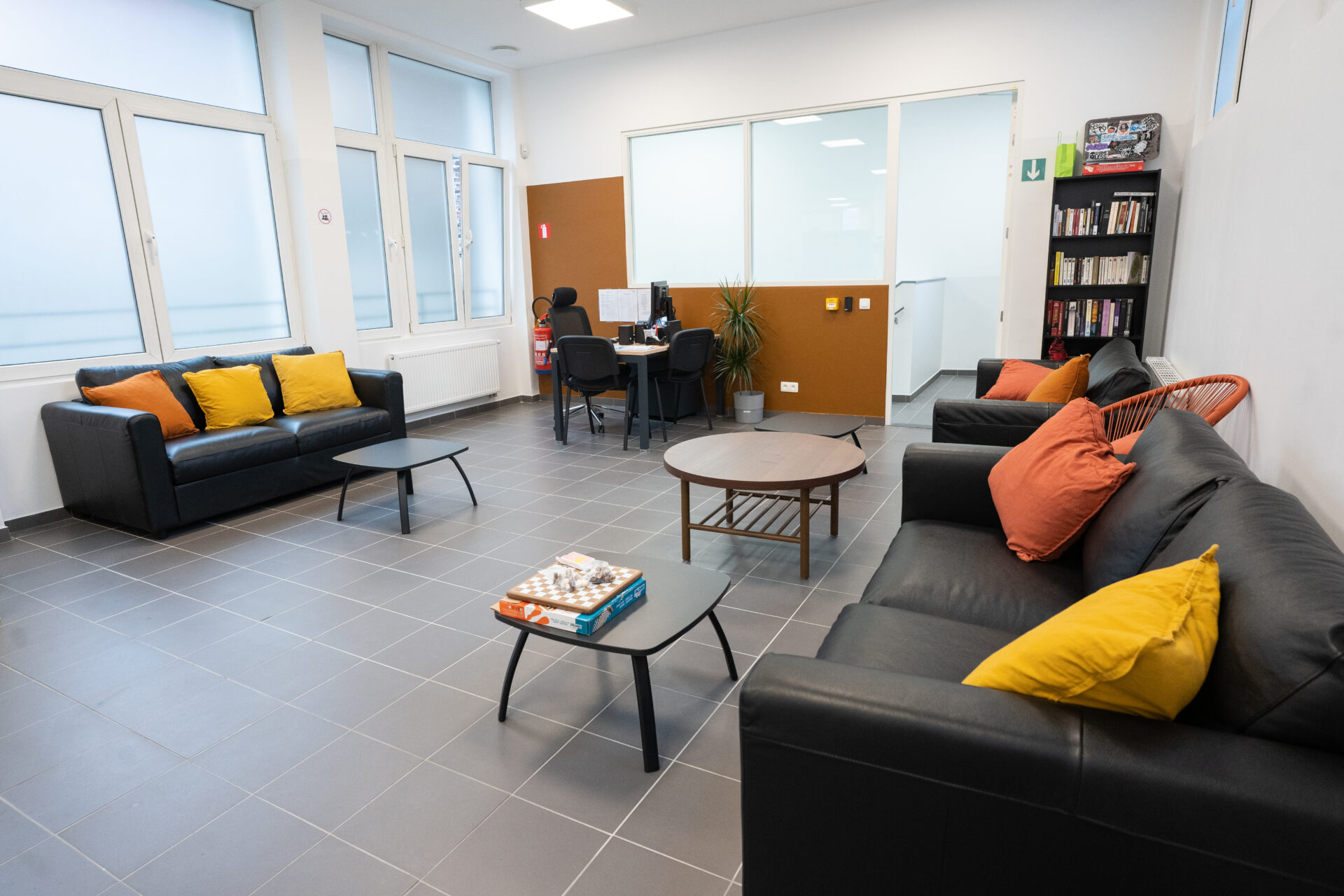
Some people frequent Gate solely to visit the doctor, social worker or avail of recreational zones. Credit: Belga / Juliette Bruynseels
This line of thinking underpins Gate's central mission: ensure that vulnerable communities have access to healthcare. By cultivating an atmosphere of non-judgement, the centre aims to destigmatise drug use and encourages people to consume in a safe environment that offers a plethora of routes towards help.
"80% of users at Gate would be using on the street if the centre didn’t exist," says Valkeneers. "They tell us they consume less when they come here. When you create a service adapted to people’s needs, people will come."
Legal loophole
A federal law dating from 1921 is still in force and technically forbids the existence of SCMRs. However, Belgium's first SCMR opened in Liège in 2018 in spite of these legal constraints, and Gate was able to open thanks to a regional ruling that overrides the pre-existing legislation.
There are almost 100 centres scattered across Europe, and globally, there has been a marked move away from the idea that drug addiction should be penalised. According to a 2023 report conducted by the European Monitoring Centre for Drugs and Drug Addiction (EMCDDA), evidence suggests that SCMRs improve healthcare among hard-to-reach groups, do not increase crime in the surrounding area, may contribute to a decrease in public drug use, and might decrease drug-related deaths.
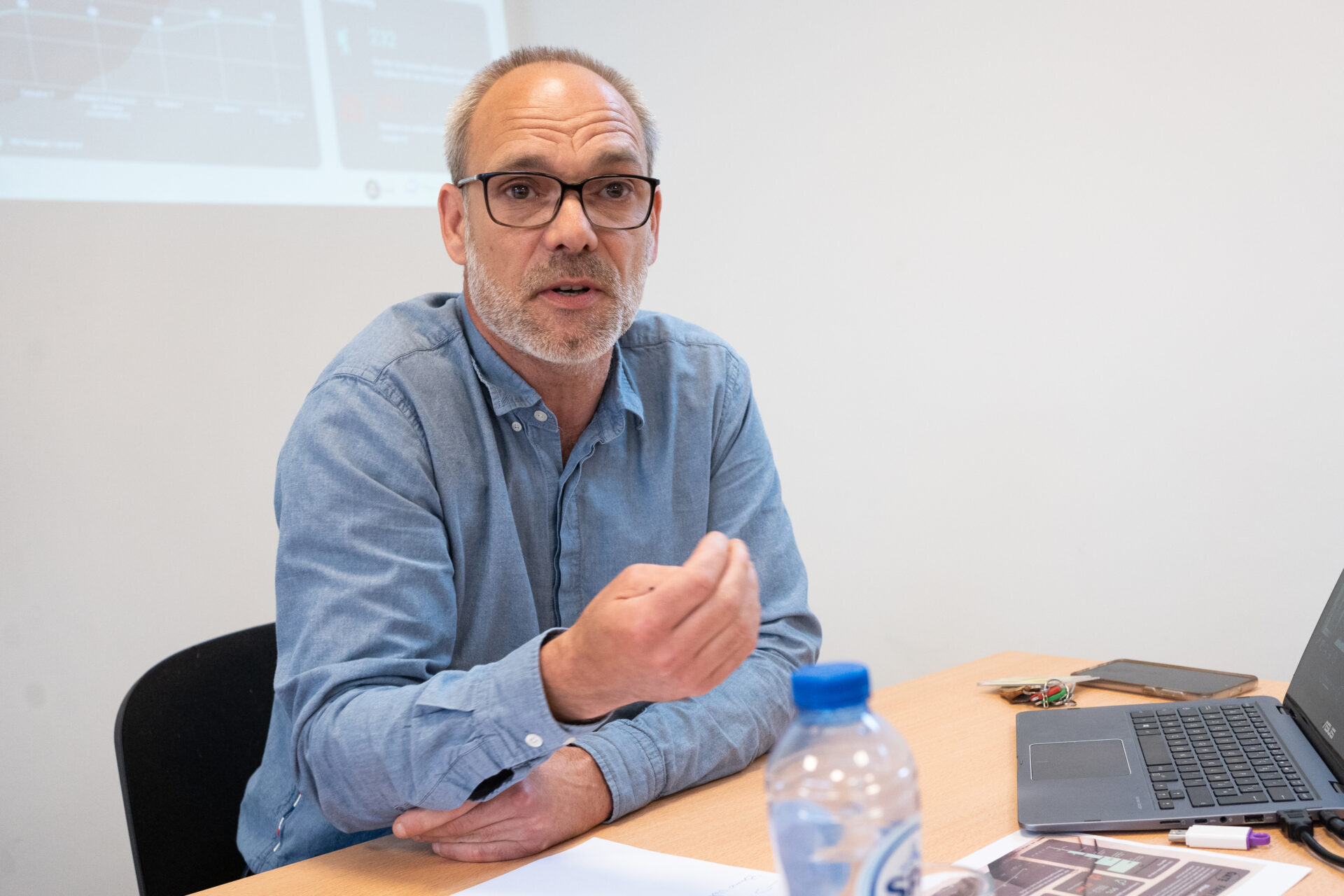
Transit spokesperson Bruno Valkeneers. Credit: Belga / Juliette Bruynseels
In Belgium, the notion of SCMRs is generally positively received but some obstacles remain, says Valkeneers. "People aren’t necessarily opposed to it, but there is a bit of a 'not in my backyard' attitude going on," he explains.
Political opposition is difficult to shift too. Conservative politicians tend to frame SCMRs as encouraging drug use, thereby threatening public security. Even after visiting Gate, representatives of right-wing parties N-VA and Vlaams Belang did not alter their view towards the initiative. "They saw how it worked yet they continued to state their previous beliefs. It was quite shocking."
Political buy-in
Nevertheless, more moderate politicians are beginning to endorse a harm-reduction approach to drug addiction. Local politicians including City Mayor Philippe Close (PS), Saint Gilles Mayor Jean Spinette (PS) and Etterbeek Mayor Vincent De Wolf (MR) are openly advocating for the creation of more centres. Belgium's third SCMR will open in Yser later this year.
This political buy-in is borne of a desire to assuage public security concerns. At hotspots like Porte De Hal, rampant drug use in broad daylight has rattled business owners and the local community, and representatives are keen to show leadership. "People are afraid. And I am ready to listen to their concerns," Spinette told The Brussels Times in December.
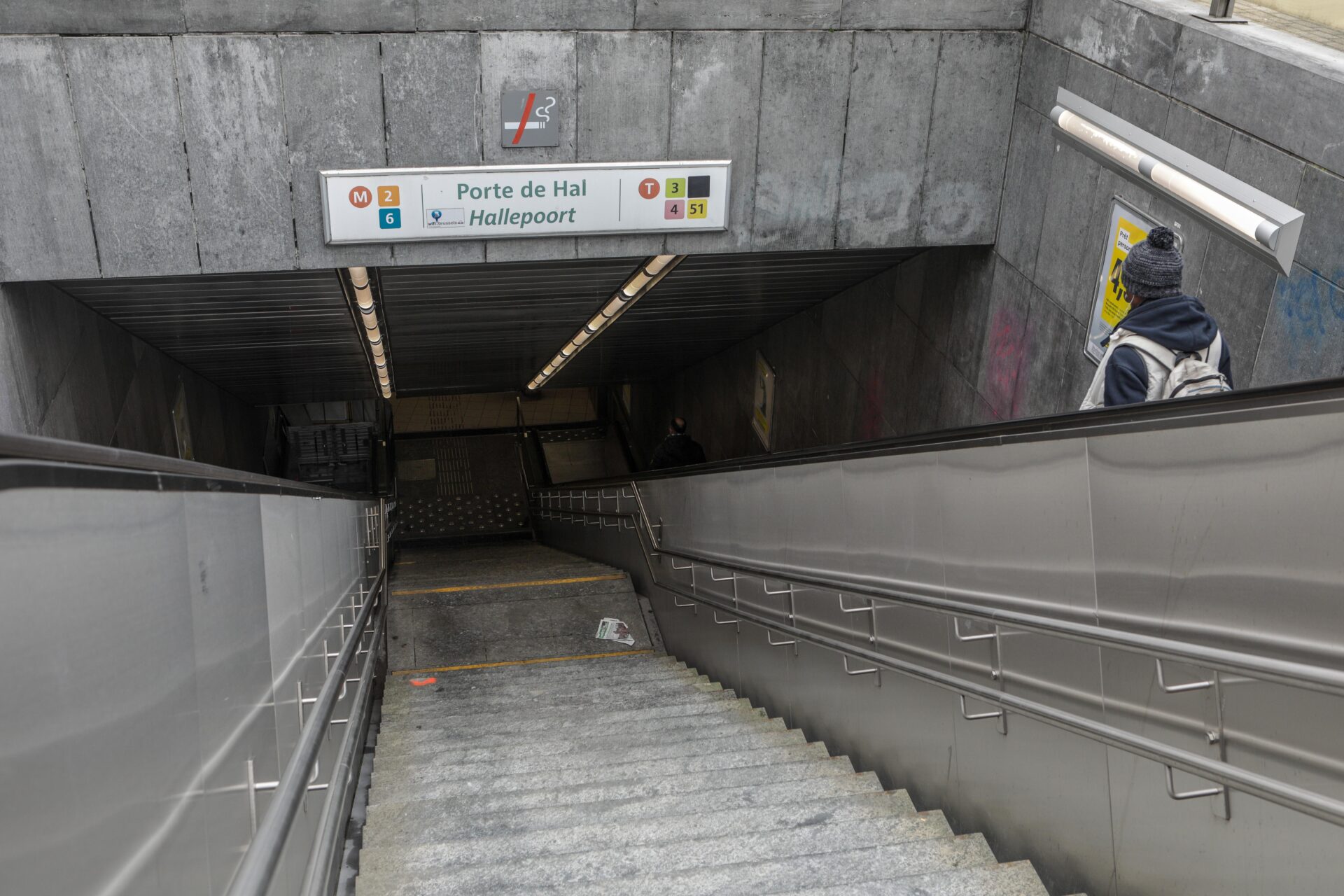
Porte De Hal has become notorious for public drug use. Credit: Belga / Paul-Henri Verlooy
Several individuals working with drug users expressed frustration at the fact that so many resources went to security crackdowns rather than social care. Any mention of Plan Midi, the summer "clean-up" of drug consumption in and around Gare du Midi, provokes palpable frustration among anyone working in the non-profit sector.
"Simplistic solutions clearly don’t understand structural problems," says Valkeneers. "Instead we need more welcome centres, more accommodation, and more social support. There is a very well-developed care network in Brussels, but all of the organisations are swamped. We need enormous investment."

